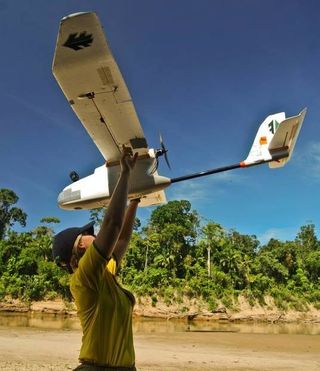 I am a conservation scientist focused on the human dimensions of nature conservation. Human behavior is the root cause of most of environmental problems, yet most conservation scientists focus on understanding ecosystems and protecting plants and animals. My is research is focused on understanding human-nature relationships and how to influence and engage people into doing pro-environmental behaviors such as composting, recycling, voting for environmental legislation etc. Sophiawinklerschor.com @ScientistSophia Why did you choose to become a scientist? Raised by two environmental enthusiasts in the Pacific Northwest I was always playing outside, hiking, skiing and learning about the natural world. When I was 13 I traveled to South America for the first time. I was stunned by the natural beauty I encountered. The lush green jungles of Venezuela and Peru were like nothing I had seen before. This experience was very formative. As I grew older, I learned about the destruction of the Amazon rainforest and the increasing impacts of climate change on glaciers and coastal regions. All my experiences and my love of nature inspired me to pursue a B.Sc. in Environmental Science and a M.Sc. in International Nature Conservation so I can continue fighting for the protection of the amazing natural world. What are your current research interests? I am currently researching how people's values (e.g. family security, wealth) influence how they value nature. People's values are very formative for our relationships with nature. Environmental problems will impact everyone, yet in the U.S. they are seen as partisan issues. Through understanding people's values, I hope to frame environmental issues and legislation in ways that resonate with different audiences. Ultimately, everyone will benefit from conservation and climate change policy but our values influence how we digest and interpret information. Understanding what people value can help conservationists develop relevant interventions and policy. My areas of interest are Central and South America and in particular developing interventions for curbing deforestation. Choose one quality that you think is the most important for making a good scientist. Why? The ability to communicate to a broad audience is crucial for scientists. While it is tempting to stay within academia it is imperative, especially for conservation scientists, to share our findings with the general public to curb environmentally detrimental behavior. However, to engage people we must be able to communicate our results in a manner that is easily understandable. Social media platforms and other outreach initiatives can help us achieve this. What advice would you have for aspiring scientists? Perseverance is key. There will be classes that are difficult, people who try to bring you down and many other bumps along the way. But the process of overcoming these obstacles will make you a stronger scientist. Surrounding yourself with a community of supportive peers, mentors, family and friends who empower you can help immensely. Why 500 women scientists? I am so inspired that women scientists have come together to empower each other in pursuing our passions. Science is a male-dominated field which I believe hinders its advancement. The more diversity the better and ensuring women in science and aspiring scientists are active, included and supported will help advance all scientific disciplines.
0 Comments
Leave a Reply. |
AuthorWrite something about yourself. No need to be fancy, just an overview. Archives
March 2018
Categories |
 RSS Feed
RSS Feed
